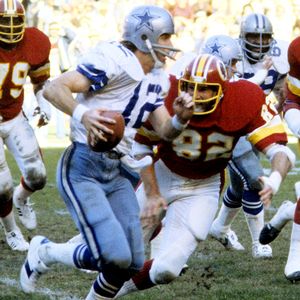Remembrance of an Oregon Thanksgiving Football Past
In Marcel Proust’s, Swann’s Way, the narrator “raised to my lips a spoonful of tea in which I had soaked a morsel of the cake.” Instantly, the character finds “exquisite pleasure,” forgets about life’s problems, yet wonders why the taste had made him so suddenly joyous. He asks: “whence did it come? What did it signify? How could I seize upon and define it?”
Today, this associative process is called a Proustian moment, and many of us experience these warm moments, because Proust felt, as an adult we sometimes come across a happy object from childhood.
My Proustian moment always comes whenever I toss a football.
Thirty-eight years ago on Thanksgiving, my family played the last of its Thanksgiving football games. No film, video or photographs exist of the event. It’s documented only in my journal I kept for my Beginning Journalism class at Oregon City High School.
It was a generational affair pitting the male cousins (Matt, Darin, and Kirt) versus the uncles (Karl, Dan and Dale) as Grandfather watched. It began in the early 1970s as a diversion from the boring half-time show of the Dallas Cowboys game traditionally broadcast on Thanksgiving afternoon.
The routine was: watch Detroit lose in the morning, gorge on a feast prepared by the women, watch Dallas play most of the first half, then at the two-minute warning, change clothes, toss the football around (the weather never mattered), play our 45-minute game on a muddy field, come back in, not change clothes, feast again, and settle into a game that invariably saw Cowboys’ quarterback Roger Staubach pull it out at the end.
As the years passed, the game evolved from a friendly Kennedy family photo op to an intense rivalry. Grandfather kept score as he prowled the sidelines, never cheering, thinking about pie for dessert, shooting bad photographs, and proud to see his brood on the field.
I played quarterback for the cousins and we lost every game, usually as a result of gimmick special teams plays or trick touchdown passes. We came close a few times, and after an especially aching defeat in 1978 when we lost on a Hail Mary with the score tied, we pledged right there on the field to go all out and win the next year.
That meant ratcheting up the seriousness of the game so that’s exactly what we did. We repeatedly talked strategy on the phone in September. In October, I recall at some family gathering Darin gave Dale, the younger uncle, a tube of Ben-Gay, saying “You’re going to need this when the next game over.” Dale didn’t think it was funny.
About a week before Thanksgiving, the cousins met and an incident occurred that made me realize just how serious we’d become in pursuit of victory. In a discussion on how to thwart Dale’s big-play capability, Darin set up a wooden folding chair, coiled into a perfect three-point stance, and announced, “This is what I’m going to do to Dale.” He then exploded into the chair, sent it flying into a wall ten feet away where it shattered into a half dozen pieces. We were in a church at the time.
It would almost be literature if I could write the game was close, hinged on a final play. I cannot. We blitzed the uncles from the opening kickoff and won 49-14 on a dry field at Ainsworth Park in Northeast Portland. We scored on every possession. We seemed faster, more into it. We never let up on the uncles as they had on us in the earlier games of the rivalry. When the rout concluded, we all shook hands, and I remember feeling great in a way that I had never felt before.
We headed back inside, I think the women might of asked “who won?” and the two teams gathered up a second big meal, and caught the rest of the Cowboys’ game.
In six months Grandfather would be dead from a heart attack, Darin off to college, my dad no longer part of this family’s holidays because of divorce, and I would get my driver’s license. We never played football as a family again.
I’m not wracked by nostalgia for the victory, my family as it existed then and a wish for an American era when Woody Hayes was important and where Lucy would have always let Charlie Brown kick the football. I give thanks every Thanksgiving for the reason that I know I’m very lucky to recognize the exact moment when I experienced the best of my youth. I know what it signifies. Rereading the journal entry recently for the first time in three decades, I think I even knew back in 1979.
(If you found this post enjoyable, thought provoking or enlightening, please consider supporting a writer at work by making a financial contribution to this blog or by purchasing an NSP book.)

